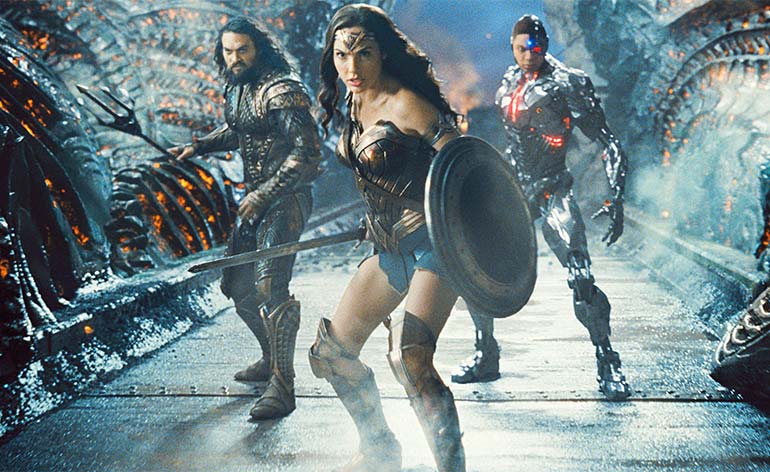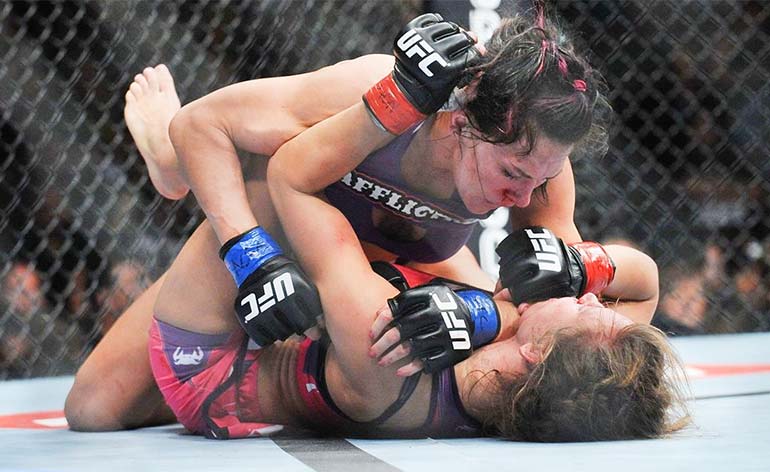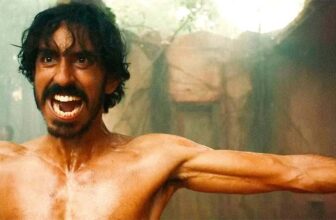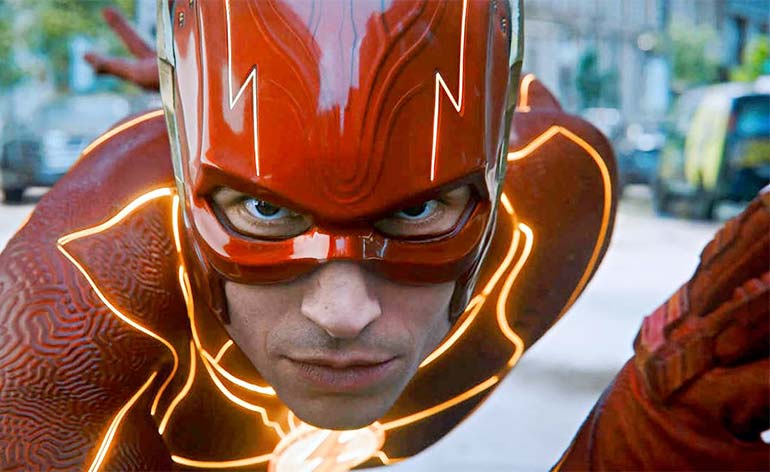
Eduard Folayang is among the most recognizable figures in One Championship and the renown Filipino MMA team, Team Lakay. Nicknamed “Landslide”, Eduard Folayang boasts a true underdog, rags-to-riches story.
Growing up in severe poverty and losing 5 of his siblings due to illness, the Filipino standout made it through some of the toughest trials and tribulations that any human could possibly endure through the stabilizing practice of martial arts.
Having started his martial journey in the arts of wushu and Sanda, Folayang was a 3-time Southeast Asian Games champion before transitioning into the sport of mixed martial arts, where he not only fought on the very first One Championship card, but also won the One Lightweight World Champion title on two separate occasions.
His accomplishments with the Singapore-based promotion and incredible story of triumph were what made him a national hero in his home country of the Philippines. Boxing icon and politician, Manny Pacquiao, called him “one of the legends of MMA in the Philippines”.
Now he sits down with KFK for an exclusive interview where he talks candidly about his career, life, unique insights, advice for MMA students, future plans, and much more. So without further ado, let’s welcome Eduard “Landslide” Folayang!
Hello Eduard, first off, it’s great to connect with you, and I hope you’re doing well? Welcome to Kung Fu Kingdom!
Hello Jeffrey. It’s indeed a pleasure to be one of your guests, good day to you!
What were your initial impressions coming across KFK?
I think it’s a good way to share martial arts content, especially for those who might not know much about martial arts.
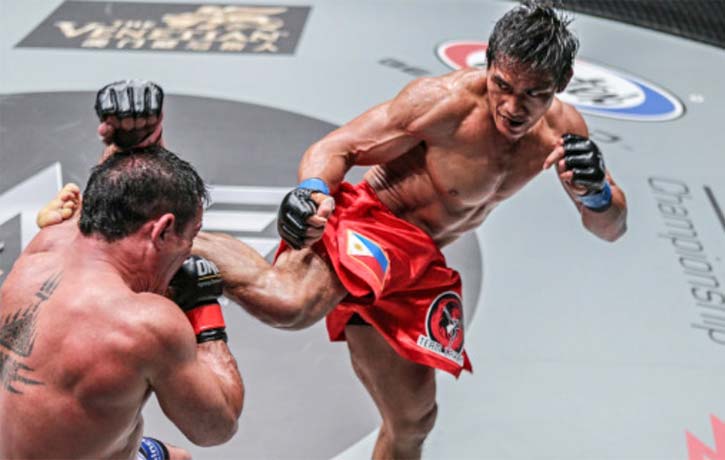
Folayang lands a kick against Adrian Pang
For sure. Our mission is to inspire 100 million people across the world to get into martial arts. What do you think of that mission and what do you think of the name Kung Fu Kingdom?
It’s very interesting! When we talk about kung fu, the one thing that comes to mind for most people is martial arts. When we see a movie like Kung Fu Panda, it gives a hint that the movie is about martial arts and that there are a lot of things that martial arts can teach us. I think your mission is good because martial arts is not about aggression. The values that martial arts teach are good lessons that we can all learn and benefit from.
Background
Absolutely. Alright, let’s start off with a few basics; when and where were you born?
I was born in Baguio City, Philippines on November 22, 1984, so I’m 36.
What is your height and weight, including your walk around weight?
My height is around 5’7” (1.73m), and I walk around at 169-172lbs (77-78kg)
Who would you say are your top 5 chief martial arts influences?
Some of the most influential people for me are Bruce Lee, Jackie Chan, Jet Li, my good friend Benjamin from when I was young (because he’s the first one I personally knew who got into martial arts) and my coach, Mark Sangiao.
An interesting list there. Now, you definitely had a very tough upbringing growing up, especially with losing five of your siblings. How did you manage to overcome poverty, and what influence did your childhood situation have on your decision to take up martial arts?
Well, it’s tough to lose five of your siblings. I give credit to my parents for not giving up, and doing their part to raise us. Of course it’s hard, but we learn how to manage the small things and when we were still kids, we participated in a lot of indigenous combat sports. I think that helped our upbringing, to become tough.
You learn not to get bullied, you don’t want to be bullied so you need to be tough, you need to be involved in something. When I learned martial arts and watching Bruce Lee movies, it gave me a sense of direction so I could combat the bullying right away. That was one of best decisions I ever made when I enrolled in a kickboxing club.
Excellent. So you specialize in wushu and Sanda. I’ve also seen that you took up some boxing, and you just mentioned kickboxing. Did you practice any other styles?
I focused on wushu and Sanda because when I was 16, I really wanted to represent the Philippines in international competition and when I took wushu, it was one of the best ways for me to do so. There’s so much interest in wushu. There’s kicking, punching and wrestling. I did that for almost a decade. I also did other sports, and of course, when you enter MMA you really need to have a good ground game, so I took BJJ classes
Career
I see. So you competed in wushu and Sanda. You have medalled at international level. What interesting stories can you share from your wushu days?
When I first competed at the international level, we had the Southeast Asian games, but I lost my first international competition in Malaysia against an opponent from Thailand. At the time I didn’t know Muay Thai and the guy who beat me was a pro Muay Thai athlete. So the Thai government hired him to represent them. He was the one who ended up getting the gold medal.
So I looked up Muay Thai and saw that it was a tough sport. It was a different level of striking. Of course it motivated me to not only learn from my own sport, but also to broaden my arsenal. And I really told myself that in the next competition I’m not going home without a medal. That was the start of it. In wushu, I continued to grow. I was able to get a medal the following year.
“Failures” can Either Motivate You or Break You
I always think that failures will either motivate us or break us. I think that it’s one of the best lessons I learned when I entered wushu as a competitor. I learned that when you fail, you can decide to stop or take the lessons forward and still continue with your passion.
So the ability to adapt?
Yes, that’s very important. I believe that the ability to adapt is so so important because others are striving to be the best too. So I believe that we need to adapt and grow everyday, especially in this day and age.
Criminology Student Turns Pro Fighter
In 2006, you graduated from university to become a teacher. What made you decide to settle down to do that, and what made you decide to continue pursuing your martial-arts dream?
What made me finish my courses – my parents! I really wanted to finish my studies because that’s one of the things that you simply had to do. So I finished my studies and after doing some teaching, I decided to come back to the fighting arts again. I tried out teaching because I was really inspired by my Chinese coach, Coach Yu who was really good at teaching.
So, I was a criminology student before. After I got my degree, completed my bar exam, and taught for a short time I decided to return to martial arts because I believed there was a lot of potential for it in me. It was a good thing that I got back into it.
From Wushu to MMA Pro Debut
Definitely. Now you started competing in MMA professionally in 2007. Before One Championship you won championships in URCC (Filipino MMA promotion, Universal Reality Combat Championship) and Martial Combat. Your first ever pro fight was for the URCC Welterweight title, which you won. What interesting stories do you have from those times? How did you manage to get the URCC title shot in your very first pro fight?
Coach Mark was the first one to compete in URCC that day, and I was cornering him. Then I decided to compete in a tournament and won. I got the title shot in my first pro MMA fight because of my amateur wushu record. They wanted to use the high level of competition I’d been through to compete with the champion.
I didn’t know much about the ground game back then, but I started to learn some of the basics, and in the URCC, the time limit for every round was 10 minutes. In the 10 minutes of the first round, I was nearly submitted, almost put in an armbar, but I was able to escape and I won via ground and pound. That was my professional debut in MMA and after that I was able to defend my title multiple times.
When I was still competing in URCC, Martial Combat was organized in Singapore. Victor Cui was the one managing that, and he was interested in signing us up in Martial Combat – that was the time we went international and I was able to win the Super-Fight Championship.
Signing Up with ONE Championship & Breaking His Nose vs Korean Fighter A-Sol Kwon
In 2011, I signed with One Championship.
I see. Now you competed in the very first One Championship card. Can you share a memorable story from that moment?
One of the most interesting stories about my first fight with One Championship was that I fought A-Sol Kwon from South Korea. He was a very tough fighter. After the fight, I saw on the playback that my nose was broken. It was a really good thing that I wasn’t able to notice that until the fight was over.
If I noticed it earlier, it would’ve made me very self-conscious and I would’ve had doubts as to whether I could finish the competition. So we fought, I was able to win and we got the Fight of the Night for that fight.
Good nerves and endurance there. Later on, you fought and defeated Shinya Aoki for the One Lightweight championship, defended it once before losing it to Martin “The Situ-Asian” Nguyen, but reclaimed the title after defeating Amir Khan. What do you recall best about those title shot days and your time as the champion?
BJJ & Preparing for His Fight with Shinya Aoki
When I was scheduled to fight Shinya, a lot of people believed that I would lose and that I couldn’t win over him because he was a legend. Even before I entered MMA, he was already competing and had very high-level grappling.
But I thought to myself, I could do something that others couldn’t do. So what I did was train hard, enrolled in BJJ classes, learned some fundamental techniques, and prepared very well for that fight. I prepared physically, mentally, and spiritually. In the competition, I knew that Shinya was really good on the ground, so I was going to defend and when I had the opportunity to stop him, I’d take it.
Sometimes in life, when you face big obstacles, people would normally say “You can’t do it! That’s impossible!” But you, as a martial artist, should believe that you have the ability to react in the right way or you’ll believe that just because others can’t do it, you can’t either.
I was so happy when I got the win over Shinya, and they said that it was one of the biggest upsets, but it really proved that what’s thought to be impossible can be possible if you prepare well and believe in yourself.
On Fighting Eddie Alvarez
You definitely prepped thoroughly. You also fought former UFC lightweight champion Eddie Alvarez, which was one of your higher-profile fights. It didn’t go your way, but, obviously, you were beating him in the stand-up and you dropped him with a leg kick. What do you recall most about your bout with Alvarez?
Fighting a legend of the sport is always a great opportunity. I was winning the fight, but with a single mistake, I was submitted. So I think the problem with me at the time was that I focused too much on the stand up. I forgot it was MMA, and as a wushu specialist, I focused more on the stand up aspect.
As for the fight itself, I rushed, and I just wanted to finish him. I wasn’t rushing against Shinya, but with my fight against Alvarez, I rushed and got into my emotions very early, so I learned my lesson. I think it was one of the best lessons I learned there. It’s a sport, and sometimes, even if the win is there, there’s a process, you can’t be overzealous.
Now, many fans believe that you’re in the twilight of your career. Obviously, you’ve had a very impressive run, which saw you claim the One Lightweight title on two separate occasions, not to mention that you’re one of the most popular fighters in One as well as a national hero in the Philippines. What are your future MMA plans?
Eduard’s Love of Martial Arts
Well right now, I know I can still compete at the highest level. So I have few years left. As you said, I’m in the twilight of my career, but I was inspired by other great MMA athletes that could still compete at the highest level of competition into their mid-40’s.
So for me, I just want to be myself. I love martial arts. It’s one of the best things that give me joy, so I’ll still continue to do it.
When I’m done with my fighting career, I’ll probably transition to the next level, which is coaching or other things that still involve martial arts. For now, that’s my plan, which is to keep enjoying the moment as long as I’m still strong and capable of competing with the best.
A Day in the Life of Eduard “Landslide” Folayang…
Now aside from being a national hero in the Philippines, you have helped with charities to raise money for impoverished children in the Philippines. Can you walk us through a day in the life of Eduard Folayang?
Well, when disasters hit our nation, one of the best responses is to help, or lend a hand, you know. Going to the gym and talking to Coach Mark, isn’t only about martial arts, but also about how to give back to the community.
So we organized the Team Lakay Foundation to be able to do more, not only in the sport, but also for other people in the Philippines, to inspire them. That’s one of the best things we could do – to inspire others and help them in moments when they really need help.

Eduard Folayang with his signature spinning hook kick
Remembering how my parents grew up in poverty in the past was hard, but if you could inspire people that they could do great things despite circumstances, it’s a very good thing to share, especially in this nation. So that’s what we do, we share when we have the opportunity to do so.
Training
That’s cathartic. So what has your training schedule been like, both before and during the COVID-19 pandemic?
Most of the training we did during the lockdowns were in-house training. You need to be creative and find ways to train because you cannot go out. You had to stay at home. Luckily, when the borders opened back up, that’s when we had the chance to go back into the gym. But it’s really tough.
There are a lot of protocols you need to follow and if you don’t have the skills to do the sport, you could stay home and be depressed, but we find ways to train, and when we can go to use the gym, we do.
Makes sense. So what is your diet like leading up to fights, and which foods help you stay strong and energetic for training and for life?
I eat rice first off. I learned from my wushu days to eat more carbohydrates when you do things like long runs. When you do extensive workouts, you need to have a lot of carbohydrates to burn. For recovery, we eat a lot of protein.
For us here, because we get a lot of vegetables, we eat them a lot! The main thing is, we have the knowledge on eating the right food, depending on the training we’re going to do, but basically for us Filipinos, we eat a lot of carbs. We are nice rice people.
Eduard’s Top 3 Favourite Martial-Arts Films & Fights
Nice! Now onto your top 3 favourites if we may. Which 3 titles make it to your favourite martial-arts-movies-of-all-time list?
“Enter the Dragon” with Bruce Lee, “Kung Fu Panda”, (I like the moral of the story) and “Once Upon a Time in China” starring Jet Li.

Folayang during a training session
Excellent choices. Which would you say are your top 3 favourite martial-arts movie fights?
The “Enter the Dragon” end mirror fight scene. It was a long movie but that fight was what stuck in my mind. Another would be Jet Li when he fought against probably 100 people in “Once Upon a Time in China”. I watched it when I was very young and I was thinking to myself, “Wow how did Jet Li do that?”
He had just one sword and was up against so many soldiers and villains, and he was wearing a blindfold and saying to himself that he didn’t want to see the blood of his countrymen. So he blindfolded himself. Definitely a worthwhile fight for you all to revisit!
On our list! What are your own most-memorable MMA fights?
For me, it would be my first MMA fight because that was the start of it, the win over Shinya, and the fight where I reclaimed the belt against Amir Khan.
Advice & Reflections
What suggestions would you give to those interested to pursue MMA as a career?
Probably the best advice I could give is, if you really want to achieve something, then you need to be willing to pay the price for it. There are a lot of sacrifices you need to be willing to make to be able to achieve that.
A lot of people say they want to fight in MMA, but they stop after two or three days. So they really need to assess if it’s really something they want to do. If they get into it, they need to pay the price for it. That’s the best advice I could give them. There’s always a price for everything.
Solid. What suggestions would you give to those struggling to overcome poverty?
Be a good manager. You need to manage your time, your energy, every little thing, and from there, you can learn. I think it really comes down to how you manage yourself. As for me, I think that’s the thing. When I focus on martial arts, I need to manage every single resource that I have, the time to train, as well as maintaining the relationships I have with other people. I think that’s it.
Fun & Leisure
Good, practical suggestions there. What are your hobbies outside of martial arts?
Outside of martial arts, I love hiking. I also love listening to good music, but I love hiking more.
Cool. What’s a geeky or funny thing that most people don’t know about you?
I love playing Mobile Legends these days, haha!
If you could be a superhero, who would you be and what superpower would you most like to have?
Probably Goku from Dragon Ball, and the power I’d like would be Instant Transmission, where Goku puts two fingers on his forehead to teleport himself to another place.
Reflections
Sounds fun! Which warrior-wisdom quotes or philosophy have helped you become who you are today?
I’d say Sun Tzu in “The Art of War”, where he said; “If you understand neither yourself nor your enemy, you will probably lose every battle. If you understand yourself, but not your enemy, you have roughly a 50/50 chance of winning. If you understand yourself and your enemy, you will be far more likely to win any battle.”
Eduard’s Message for Kung Fu Kingdom Fans & Followers
Excellent quote there. What special message you would like to leave KFK followers and your fans around the world right now?
Thank you to all the followers of Kung Fu Kingdom, and all my fans for tuning into this. You should all live your lives purposefully. You should live your life with a reason. That’s what I’d like to share with you all right now.
Thanks Eduard. It’s been an honour, an insight and a real pleasure to interview you and we wish you all the best of success with your upcoming fights as well as everything else you’ve got planned for 2021.
Thank you Jeffrey, and thank you all for your time!










